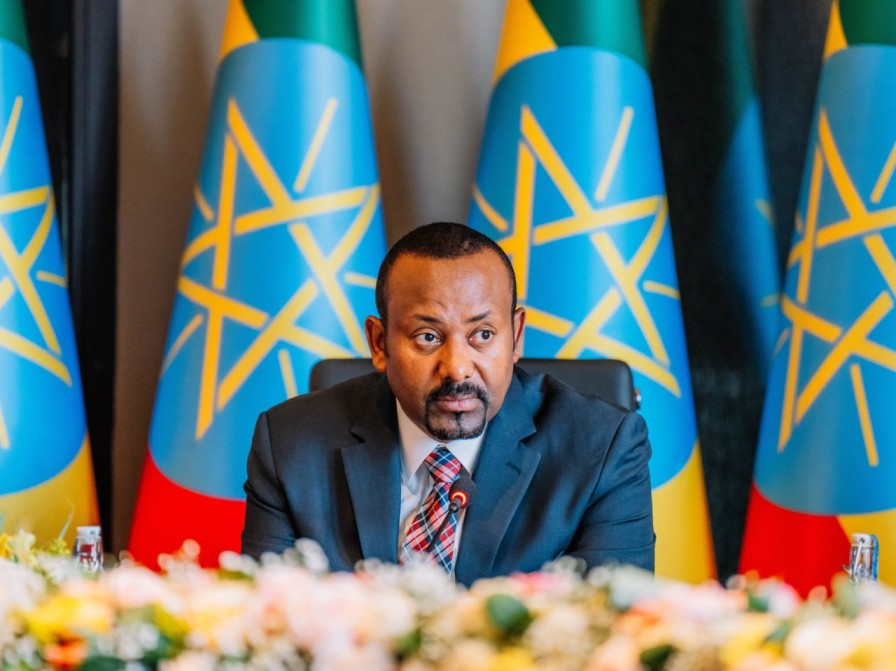Ethiopian PM Abiy Ahmed pushes for sea access, avoids war - for now

For landlocked Ethiopia - a country of over 130 million people and one of Africa's fastest-growing economies - the lack of direct access to maritime trade routes has long been a geopolitical sore point.
In a carefully worded address to parliament on Thursday, Ethiopian Prime Minister Abiy Ahmed reiterated his country's strategic imperative for sea access — a message increasingly central to his administration's foreign policy doctrine.
Framing the issue as one of national survival, Abiy called for peaceful dialogue with neighbouring states, notably Eritrea, Sudan, and Somalia, to resolve tensions in the increasingly volatile Horn of Africa.
More To Read
- Mogadishu’s Hamarweyne market shut for third day amid tax dispute
- How to make sweet and savoury plantains at home
- Sudan army makes major gains in South Kordofan, retakes key villages from SPLM-N
- Somalia on high alert as Marburg virus outbreak hits neighbouring Ethiopia
- Sexual violence driving mass flight from Sudan to South Sudan: What you need to know
- Mass displacement, trafficking fears deepen crisis in Sudan’s El Fasher
For landlocked Ethiopia - a country of over 130 million people and one of Africa's fastest-growing economies — the lack of direct access to maritime trade routes has long been a geopolitical sore point.
The state relies heavily on Djibouti, through which over 90% of its trade flows. But this dependency comes with economic vulnerabilities and strategic limitations.
The loss of access to the Red Sea dates back to 1993, when Eritrea formally seceded from Ethiopia and took with it the port city of Massawa.
Though the two nations signed a peace accord in 2018 - earning Abiy a Nobel Peace Prize - relations remain fragile, shaped by historic animosities and shifting regional alliances.
Abiy's recent rhetoric, while diplomatic in tone, carries strategic weight. "Our internal security is tightly interwoven with regional peace," he told lawmakers.
The subtext is clear: Ethiopia's push for maritime access is no longer just an economic necessity — it is a cornerstone of national sovereignty and stability.
In January 2024, Abiy's government signed a Memorandum of Understanding with Somaliland — the self-declared independent region of Somalia — granting Ethiopia access to 19 kilometres of coastline along the Gulf of Aden.
In exchange, Addis Ababa reportedly agreed to recognise Somaliland as an independent state, a move that predictably incensed Mogadishu.
Somalia, which claims sovereignty over Somaliland, cut diplomatic ties with Ethiopia in protest.
The episode exposed the risks of Ethiopia's maritime ambitions.
While framed as a peaceful commercial agreement, the deal was viewed by Somalia as a direct assault on its territorial integrity.
Tensions cooled only after Turkish mediation led to a diplomatic thaw between the two capitals, but the core dispute remains unresolved.
In the background looms Eritrea, whose Red Sea coastline remains a tantalising — and historically fraught — prospect for Addis Ababa.
Despite a nominal peace, relations between President Isaias Afwerki and Abiy remain icy.
Sudan, too, remains wary, with tensions over border disputes and the Grand Ethiopian Renaissance Dam (GERD) simmering just below the surface.
Ethiopia's growing frustration is not without reason.
Its demographic and economic pressures are intensifying. A youthful population, rapid urbanisation, and ambitions to industrialise demand reliable trade access, and the cost of dependence on Djibouti is rising.
But the means through which Ethiopia pursues its maritime aspirations could shape the security landscape of the Horn for years to come.
So far, Abiy has pledged dialogue, not force.
But history in this region suggests that diplomacy is often a prelude to more muscular forms of engagement.
Top Stories Today











































